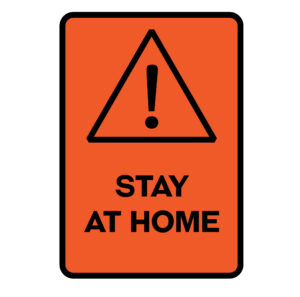
As you’re probably aware, Minnesota Governor Tim Walz issued an executive order on Friday to compel people to stay at home with the hopes of stopping or slowing the spread of the coronavirus. The goal of the “Stay At Home” order is to help flatten the curve and help prevent hospitals from being overloaded with cases all at once. But can you get in legal trouble if you break the Stay At Home order, and what actions are still allowed? We speculated last week, but we have clearer answers now that the order has actually been put in place.
Stay At Home Violation Penalties
The policy is currently slated to run through April 10, but federal warnings suggest that we can expect this Stay At Home order to last longer than two weeks. Governor Tim Walz said “it is certainly not our intention to make someone a criminal for going and getting bread,” but there are still circumstances under which you can be cited for violating the executive order.
According to the Department of Public Safety, police officers will be asked to provide some leniency for those who are out and about for what the state deems non-essential travel. DPS Commissioner John Harrington said law enforcement should “seek to educate instead of taking an enforcement approach.”
“It is intended that the [executive order] is applied when a gathering has become ‘a threat to the public peace, health, safety or general welfare,’ recognizing that social distancing should also be a guide,” Harrington said in a letter. “For example, a gathering of nine people in various rooms should be handled differently than 50 people at a kegger or house party.”
The Department of Public Safety states that misdemeanor citations should be reserved for people who “refuse to, or fail to, comply with the officer’s attempts to gain compliance,” and those individuals with more than two warnings or citations may be taken into custody.
Minneapolis Police Chief Medaria Arradondo asked for citizens to make smart decisions when it comes to social distancing and said his officers will work to educate instead of issuing citations, at least at the outset.
“If four or five folks are at someone’s backyard having a social gathering, (that is) very different from 100 people having a large party or violating that social distance,” Arradondo said. “So, we’re continuing to make sure we’re messaging that to our officers. If that should fail we will use enforcement measures that are appropriate.”
It’s worth noting that you can still do a number of actions that are considered essential, like get groceries or food, walk your dog, drop your kids off at daycare or pick up medications. However, if you’re repeatedly caught playing pickup basketball in the park or gathering with large groups of friends, you may end up with a citation. Be smart and help slow the spread of this virus so we can get back to normal life a little sooner. If you need legal help during this time, give Avery and the team at Appelman Law Firm a call today at (952) 224-2277.





